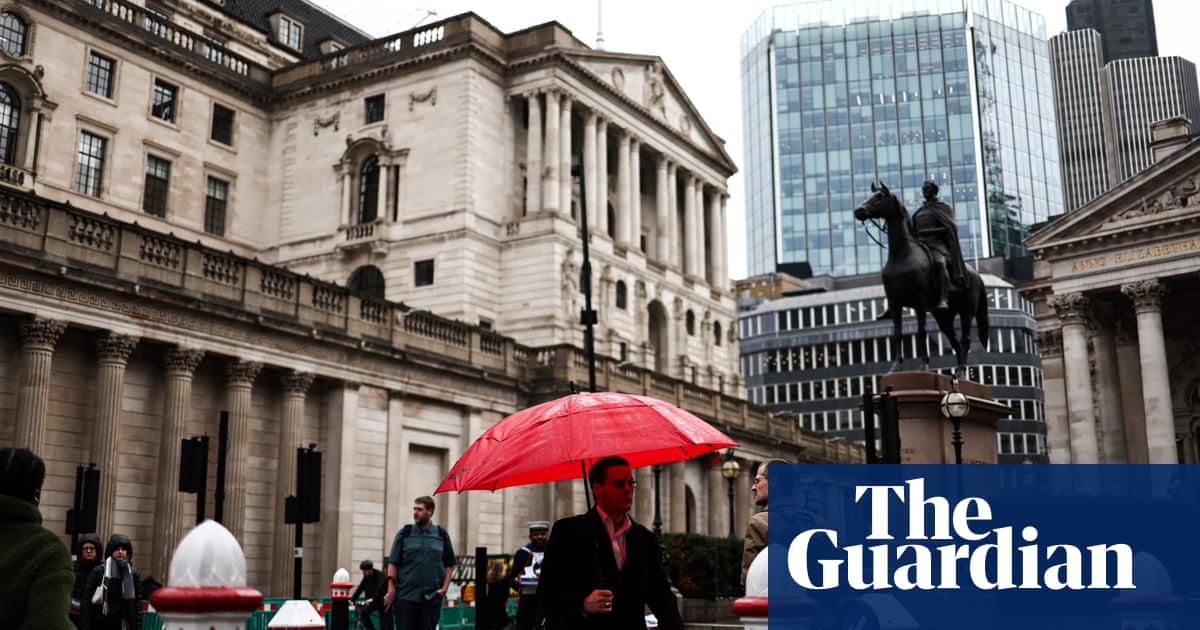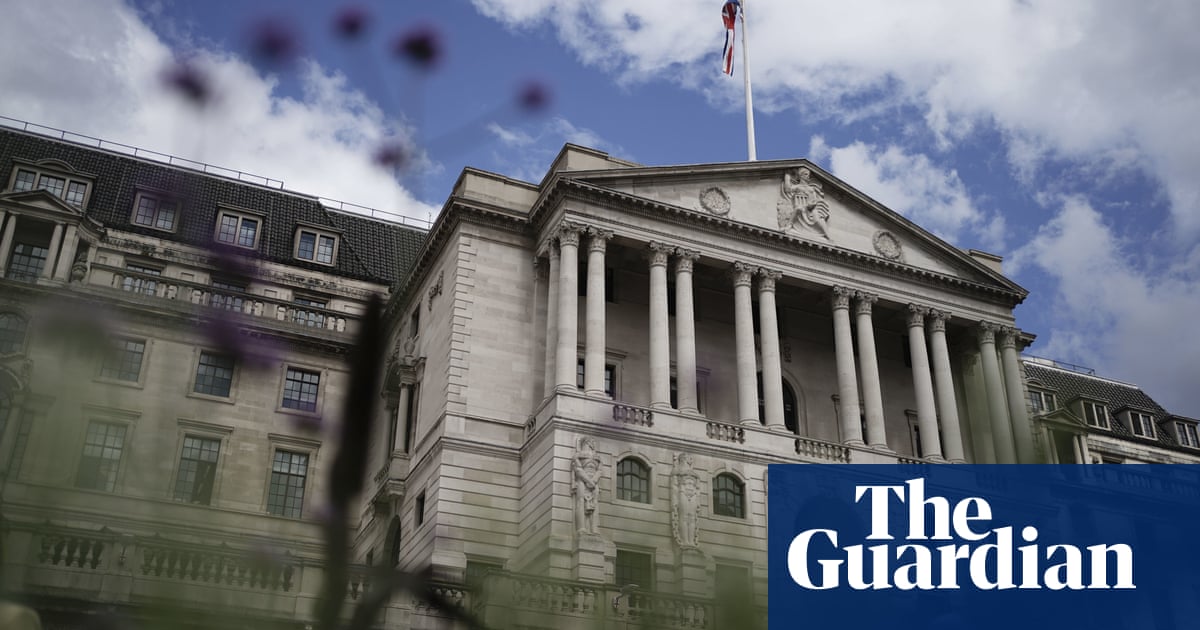
The Bank of England has said Britain is facing a tougher job to crush persistently high inflation than other advanced nations, as it kept interest rates on hold at the highest level since the 2008 financial crisis.
Pushing back against expectations in financial markets for a deep round of interest rate cuts next year, the central bank said there was still a long way to go before it could declare victory on inflation, despite a worsening outlook for the UK’s stagnant economy.
Setting itself apart from the US Federal Reserve, which signalled on Wednesday that it expected to cut interest rates three times next year, the Bank said rates would need to remain at high levels for “sufficiently long” to return inflation back to its 2% target set by the government.
The pound rose on international currency markets, reflecting the prospect of rates remaining higher for longer, gaining a cent against the US dollar to reach $1.276, its highest since August.
Andrew Bailey, the Bank’s governor, said it had “come a long way this year” after successive rate increases had helped to bring inflation down from over 10% in January to 4.6% in October. “But there is still some way to go,” he warned. “We’ll continue to watch the data closely, and take the decisions necessary to get inflation all the way back to 2%.”
Voting by a majority of six to three, the Bank’s monetary policy committee (MPC) left interest rates unchanged at 5.25% for a third consecutive time. Borrowing costs remain at the highest level in 15 years. Three members voted to raise rates to 5.5%.
However, in the minutes of its meeting, which was finalised before the Fed announced its decision, the panel said the choice had been a difficult one, between leaving rates on hold and restarting its most aggressive cycle of rate increases in decades.
“The decision whether to increase or to maintain Bank rate at this meeting was again finely balanced between the risks of not tightening policy enough when underlying inflationary pressures could prove more persistent, and the risks of tightening policy too much given the impact of policy that was still to come through,” it said.
Warning that Britain stood apart from other major economies, the MPC said in its minutes: “Relative to developments in the United States and the euro area, measures of wage inflation were considerably higher in the United Kingdom and services price inflation had fallen back by far less.”
While veering away from the Federal Reserve, Threadneedle Street was joined on Thursday by the European Central Bank (ECB) pushing back against expectations of cuts to interest rates in the eurozone. The ECB left borrowing costs unchanged on Thursday afternoon, while saying they needed to remain high despite lower inflation expectations.
“Should we lower our guard? We asked ourselves that. No, we should absolutely not lower our guard,” Christine Lagarde, the ECB’s president, said after the decision.
The Bank of England in September paused its round of 14 consecutive rate hikes, from a record low of 0.1% in December 2021, while warning that borrowing costs would need to remain high for a lengthy period to tame inflation.
Jonathan Haskel, Catherine Mann and Megan Greene were the three members outvoted in pushing for an increase to 5.5% on Thursday. The other six, including Bailey, viewed previous increases as sufficient to tame inflation because the full impact was yet to feed through to the economy.
Expectations have been growing for a round of rate cuts next year as the UK economy comes under sustained pressure from high borrowing costs, with a cooling labour market and worsening growth prospects. The latest official data showed the UK economy shrank unexpectedly by 0.3% in October.
With households and businesses under pressure from higher borrowing costs, the Bank said it expected GDP growth to be broadly flat at the end of this year and over the coming quarters.
City economists said Britain’s worsening economic outlook meant the Bank was unlikely to be able to stick to its plan of keeping rates at current high levels, with the pricing in financial markets indicating five UK rate cuts by the end of 2024 to 4%.
“Events will compel the MPC to change its tone as we move into the new year,” said Martin Beck, the chief economic adviser to the EY Item Club, who said the forecasting group expected four rate cuts next year, beginning in May.
“In that event, one of the key headwinds facing the economy will ease, contributing to momentum in activity gradually reviving.”










